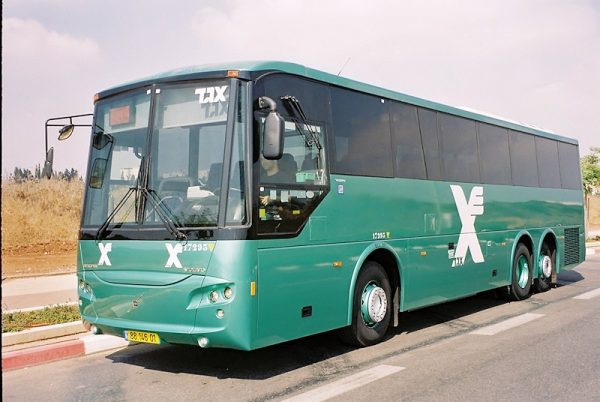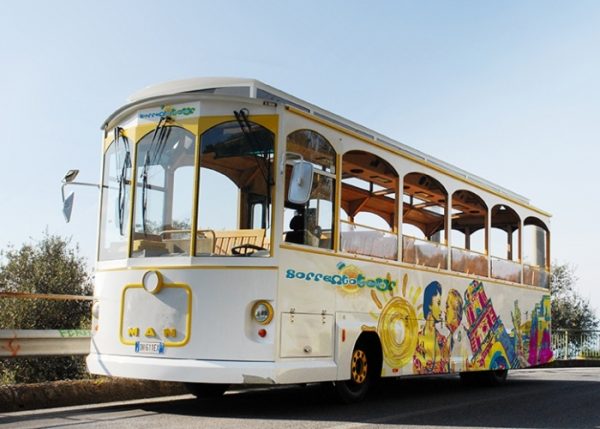The Co-operative Party has launched a campaign to promote a mutual bus solution for the future. The party is asking the public to send suggestions and share examples of how mutual enterprises are making a difference in different areas.
Joe Fortune, political and parliamentary officer at the Co-operative Party said: “Given the reduction in bus miles on our roads and the new powers of procurement being devolved to English city and county regions, we believe that the co-operative and mutual sector has the ability to make a real difference to bus service provision across the country.
“Whether it is campaigning to have the ability to designate bus routes as community assets or working with Local Authorities to show the benefits of procuring services from different types of providers, the Co-operative Party hopes to be able to make a real difference to the way in which this vital local service is seen and delivered in the UK.”
Buses are the most used public transport mode and are the preferred means of transport for those on lower wages. Despite this, millions of bus miles have been removed from UK roads since 2010 and hundreds of bus routes have been cut.
According to the Campaign for Better Transport, since 2010 over two thousand routes have been cut in the UK, while fares have risen on average by 27%.
The Co-operative Party argues that the bus market is broken and co-operative and social enterprise sectors can play a role in addressing this.
Another recent report by the Institute for Public Policy Research highlights how alternative business models such as community interest companies or social enterprises demonstrate the potential of leveraging non-commercial assets such as volunteer time and non-profit motives.
One example is LibertyBus in Jersey, run by HCT Group, a community interest company on contract to the transport and technical services (TTS) department of the States of Jersey. HCT Group and TTS have a profit-share agreement that enables the latter to invest in infrastructure and the former to reinvest its share of the profits back into the community.
One co-operative has already joined them; last year the Phone Co-op, the only phone and broadband provider owned by its customers, invested £500,000 in loan capital in HCT Group. The deal was in line with the co-operative’s environmental policy by supporting public transport and minimising car use. HCT deliver a range of transport services, apart from mainstream bus services. They provide social care transport, school transport, community transport, as well as education and training.
The government intends to reform the market, having announced plans for a Buses Bill in the Queen’s Speech. This bill would give greater powers to some city councils over bus provision in their areas.
Responding to the report by IPPR, Martin Abrams, public transport campaigner, Campaign for Better Transport, said: “Our research has shown that many bus services are being cut, especially in rural areas, and that this has real social and economic impacts, preventing people taking jobs, making access to healthcare and education more difficult, and leaving older people isolated.
“So we welcome the ideas in this report, which we believe offer new ways forward – we helped promote ‘total transport’ projects and the proposals here would build on those and bring together all the transport services commissioned by public bodies. Different forms of franchising and funding, including with social enterprises, should be promoted – and with the government’s promised Buses Bill coming up there’s an opportunity to get these ideas in to the statute book.”
Case studies

ISRAEL: In Israel the largest bus company is a co-operative called Egged, which translates as Union. Buses are the country’s main form of public transport and the co-op operates 48% of the country’s public transportation service lines. Egged runs 25,267 daily service line trips throughout the country and has 960,000 passengers every day. Security is a great concern and suicide bombings on buses pose great challenges to the co-op. Fifty-eight of their total of 3,057 buses are bulletproof. The co-op also has 25 minibuses.
Egged employs over 6,500 people whose salaries are 30% higher than those of other public transportation drivers. However, a recent decision from the management to cut hundreds of jobs has resulted in strikes from employees with calls for a salary increase.
ECUADOR: In Ecuador a bus co-operative has been providing public transport for over 30 years, linking rural areas to urban centres. The co-op was set up in 1983 by a group of 13 drivers from Gualaquiza, who wanted to connect communities in remote areas with cities. It was officially registered on 16 August, a date which also gave the organisation its official name – The 16 August Transport Co-operative (Cooperativa de Transporte de Pasajeros 16 de Agosto). It now has cars and 16 buses belonging to its 47 members.

ITALY: Similarly, in 1970s a group of taxi drivers in Sorrento set up a bus co-operative to address the need for small public transport vehicles in the city. A popular tourist destination, Sorrento is a coastal town in the south east of Italy. Its small streets, which date back to the Roman Empire, cannot handle the size of big tourist buses. The co-operative, named Cooperativa Tasso, runs small electric busses that look like trams, as well as a modern fleet of cars and minibuses. A shuttle bus also drives tourists to the top of Vesuvius. Other services include luggage transportation, car valet, school buses and vehicle rentals. The co-op can even organise boat excursions for visitors or locals. A small bus also takes groups of people on a sightseeing tour of the Sorrentina Peninsula.

